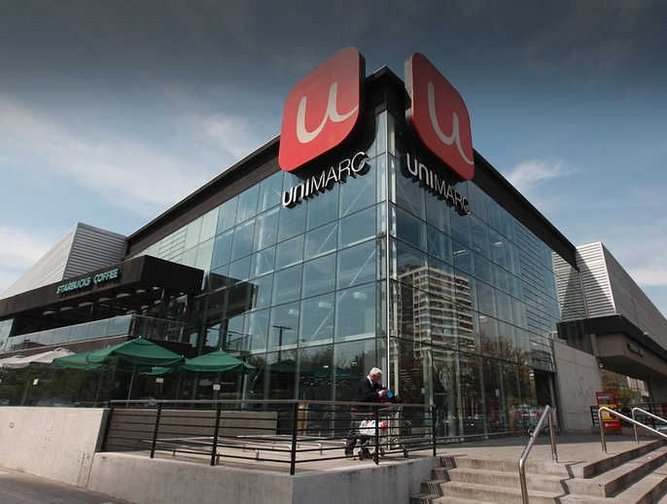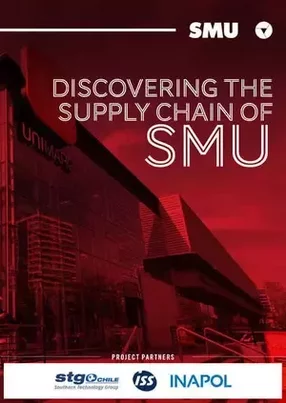Interview: SMU Head of Procurement Melania Chaverri on her strategies for the supply chain
SMU is a Chilean supermarket chain and part of CorpGroup, formed at the end of 2007 from the acquisition of more than 60 regional supermarkets chains. Currently, it is the supermarket company with the largest coverage in Chile with sales of $3.6bn annually.
The company has more than 500 stores throughout the 15 regions of the country through its different formats (Unimarc, Alvi, Supermarket Wholesale 10, OK Market and Telemercados.cl) that adapt to the needs of customers.
Melania Chaverri, Head of Procurement, has been a key person in the success of SMU. She was part of the company between 2010 and 2011 as Procurement Manager, returning in 2014 as Head of the division to help drive the firm’s restructuring and modernisation plan. The was applied between 2014 and 2016 with focus on commercial strengthening, operational efficiency and financial and organisational development.
"My role within SMU has been to restructure the purchasing area in a centralised manner, implementing a planned sourcing strategy for goods, services and assets that we call ‘no retail’. Part of this process has been to transform decentralised tactical purchasing management into a centralised model,” explains Chaverri.
"We have also structured purchasing policies and procedures incorporating technology within the supply process through e-procurement solutions such as Ariba, which will allow us to achieve greater efficiency in the processes and reduce trading times.
"On the other hand, we have a collaborative work model with the other functional areas of the company, which allows us to align supply strategies with corporate goals and objectives set by senior management.”
Operational cost control and quality standards
One of the strategies Chaverri has worked on has been the intelligent control of costs. "We manage the purchases of operational expenses under a ‘category management’ strategy, consolidating the demand of all our business units with each one of their specifications. In this way, we coordinate the sourcing and negotiation activities with which we increase the added value defining unique and specific strategies for each category,” adds Chaverri.
Thanks to its optimisation in service contracts, SMU managed to reduce operating expenses from more than 25% in 2013 to less than 22% in the last periods.
The work with suppliers in terms of quality standards has been another key to cost reduction. SMU sees its suppliers as strategic partners with whom it develops a clear joint strategy of specifications, establishing the standards that ensure the quality of the final product.
This is why Chaverri works closely with local producers in Chile. In this line, the company's commitment to small and medium-sized local entrepreneurs is developed.
"At the end of 2012, we created the ‘100% Ours’ programme, a unique initiative in the country with the purpose of empowering SME suppliers throughout the country and the development of the regions,” she says.
"Through this programme, we seek to encourage our customers the preference for regional products, highlighting them in our gondolas and privileging, in this way, small local businesses. It also allows us to offer our customers fresher and characteristic products from the area, thus generating shared value among local suppliers, our customers and Unimarc.”
Technology, the supply chain and the consumers
Process automation is guaranteeing faster and more effective purchases for consumers, with better services. The supermarkets adapt to their customers so that the purchase transactions are made in the best way and in the shortest possible time. For this, technology is fundamental: SMU will invest 20% in technology and logistics in the next three years.
"In this context, SMU is working on the optimisation of our web platforms to enhance e-commerce and directly benefit our customers, with the aim of making online purchases safely, quickly and easily. Supermarkets are also adapting to this trend by creating their own e-commerce capabilities and partnering with successful operators in the last mile.”
Artificial intelligence has also been implemented into supply management. Chaverri explains: "The main use of this will be in the process of recurring purchases, that is, simple purchases through e-procurement applications, as well as in certain processes, generating efficiency and performance in a context of procure-to-pay in addition to the continuous source-to-pay in the technology of classification of expenses.”
See also:
- How Takeda’s procurement transformation has laid the foundation for medical breakthroughs
- innogy uses strategic procurement to lead the renewable charge in Europe
- How the City of London Corporation is modernising procurement in the City
Teamplay and female opportunity
SMU employs more than 30,000 employees, being the fourth employer nationwide with 64% women and 1.8% migrants.
According to its transformation plan carried out between 2014 and 2016, the company follows a strategy to train and enhance the skills of its teams, allowing employees to develop professionally and SMU to improve results year after year.
Chaverri participated in the eighth edition of the BOW Program (Board Of Women), developed by Business Women with the aim of offering training to women to hold positions as C- and V- executives and to lead businesses with high growth potential.
She explains: "Among the main objectives are the development of management skills to face dynamic ventures, the strengthening of strategic design capacity and the ability to align the different areas of the business. It is also about exercising strategic and transformational leadership to strengthen the work of the management team.”
In this regard, the executive believes that "it has been proven that a strong female presence in a company delivers value. In addition to professional skills, female leadership stands out in the organisation – cooperation, empathy, the ability to model teams and make strategic decisions. This comes to complement the perspective of the boards of directors," Chaverri says.
Positive impact on communities
SMU is committed to reflecting the culture and needs of Chilean society, actively working to leave a positive footprint in the areas where it operates.
"We have a commitment to inclusiveness of people with disabilities in the workforce, a promise that falls within the axis of sustainability in our Strategic Plan 2017-2019. Since 2012, we have had a programme that, to date, has allowed the entry of around 250 people with some degree of disability to our businesses and stores in the country. Their arrival has generated an excellent working environment and is very beneficial for the company, sensitising the rest of the staff and promoting teamwork,” Chaverri explains.
As part of this commitment, SMU will continue to invest in transformation to offer the best of itself as an organisation: "SMU is implementing a strategic plan 2017-2019, based on six pillars: customer experience, operational efficiency, alignment and commitment, sustainability, technological development and strengthening of the financial position. In terms of experience for clients, the company is carrying out a remodelling plan for 130 stores throughout Chile during the next five years (2017-2021)," concludes Chaverri.


